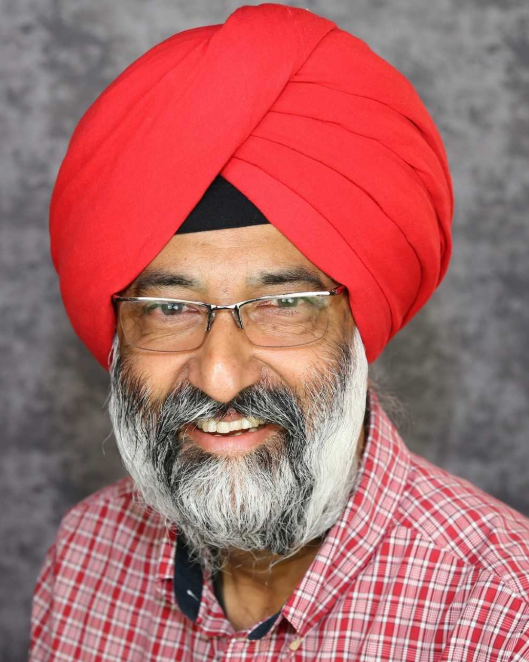A Story of Gratitude
The Day My Grandparents Left Our Ancestral Home
by Tarunjit Singh Butalia
As a kid growing up in North India, I was thrilled whenever both my parents went out since I would have the full attention of my frail and aging grandmother. She doted on me – I could do nothing wrong and my sister could do nothing right! I relished the freedom to do anything under my grandma’s watchful eyes. As I have grown from being a kid to a man, what I most fondly remember of her is not only her unconditional love but the stories she told me.
Let me share a true story that has had a profound impact on me: the day my grandparents left our ancestral village for good.
View of Butala village in Pakistan about 50 years after partition of India and Pakistan – Photo: Tarunjit Singh Butalia
By the early 1800s, my ancestors had accumulated 42 jagirs (feudal land grants), making them one of the largest landholders in Punjab, South Asia. “Batali” in Punjabi means 42, hence the family village was referred to as Butala, now a small village situated about 15 miles west of present day Gujranwala, Pakistan. Our family name “Botalia” or “Butalia” thus became common.
Then August 15, 1947 arrived – the partition of India and Pakistan. Despite Gandhi’s non-violence philosophy, the partition resulted in about 15 million people divided along religious-identity lines. This multitude had to cross from one side or the other. About half a million died in revenge killings as Sikhs and Hindus moved from Pakistan to India and Muslims moved from India to Pakistan. The carnage was equally horrific on both sides. It was, as my grandmother said, “the day we lost our humanity.”
Rural Sikhs in a long oxcart train headed towards India in 1947. – Photograph: Wikipedia
With the partition of India and Pakistan looming, some of the family (especially my dad and two of his brothers) had already moved from Butala village to Indian Punjab. By early 1947, the local Muslims of our village had assured the family of safety, so my Sikh grandparents decided to stay put at the ancestral family home with the two younger boys. In September 1947, our ancestral house was set on fire by mobs, but the local Muslims saved the house and their lives.
In late September, informed by the Muslims that they could no longer ensure their safety, my grandparents decided to leave the village for Indian Punjab. The day they were to depart, a young Muslim man whose grandparents had worked for the family stepped up and demanded that they leave behind everything except the clothes on their backs. At that moment my grandparents, Narinder Kaur and Captain Ajit Singh (retired), realized that they were never to return to the ancestral home where our family had lived for generations.
Tarunjit’s grandparents– Capt. Ajit Singh and Narinder Kaur – Photo: TSB
My grandfather wore a round turban similar to a Muslim man, and my grandmother a burqa. Holding their three-month-old son Sarabjit Singh in her arms, and putting two-year-old Narinderjit Singh on a donkey, the Butala Sardars left the ancestral village on foot for good.
They walked several days towards a refugee camp near Gujranwala. When they arrived, the British officer in charge discovered that Ajit Singh had served in the army and took it upon himself to facilitate the family’s crossing the border. On the way from the camp to the border, a mob of Muslims stopped the vehicle and demanded the family be handed over to them. Upon recognizing Ajit Singh, some of the men in the mob convinced the group to take the family to Lahore and provide them with shelter. It was an incredible change of heart – from mobsters to shelter providers. For several weeks they lived in the home of a Muslim family in Lahore who provided them with clothing and food, including non-halal meat. They were dropped off at the border in late October 1947.
I still recollect the terse tone with which my grandmother related this incident to me many times over, with vivid details – sometimes pausing to think hard about what happened when. I once gathered the courage to ask if she felt bitter by the betrayal of the young Muslim man who confronted them on the day they left the village. To my surprise, she said many at that time were not even that lucky, so she was thankful the young man let them go, even though they had to leave all their possessions. She was particularly grateful to the Muslim family that risked hiding them in their home, facing serious consequences if discovered. This lesson of gratitude even in the midst of such tragedy continues to inspire me.
Butalia family ancestral home at village Butala near Gujranwala, Pakistan, built in the 1850s. – Photo: TSB
Life does go full circle. With the help of Facebook I am now friends with many of the residents of our ancestral village of Butala in Pakistan. One of them recently shared with me that our ancestral home in now an Islamic school for girls! I treasure the photo of the door to our ancestral home through which my grandparents walked out in 1947, never to return again. I hope to return to Butala someday and walk through it to complete the circle of life that left my grandma with such hope and gratitude despite pain and suffering.
Header Photo: Wikimedia






